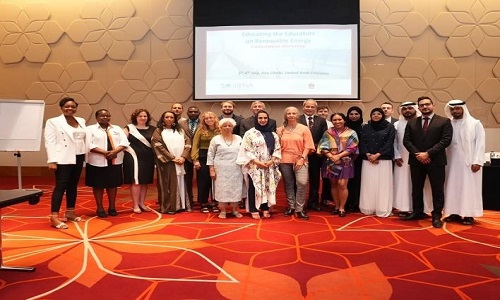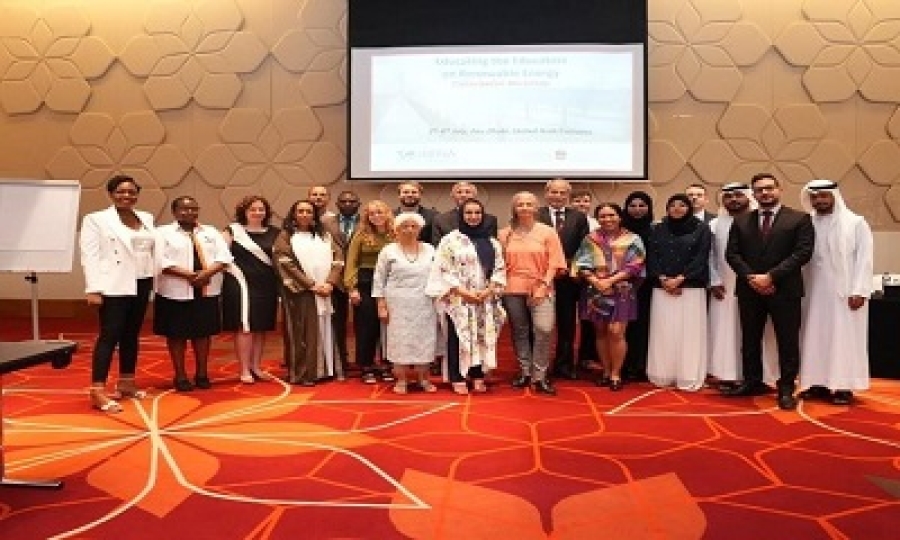EDUCATING THE EDUCATORS INITIATIVE ON THE ENERGY TRANSITION EDUCATION NETWORK
By: Mary Sichangi
CEMASTEA as the Continental Secretariat of the Association for Development of Education in Africa’s (ADEA) Inter-Country Quality Node on Mathematics and Science Education (ICQN-MSE) participated in the workshop on “Educating the Educators Initiative of the Energy Transition Education Network (ETEN)”
The workshop was held from 5th to 6th July, 2022 in the United Arab Emirates under the objective of bringing together international partners and stakeholders from the renewable energy sector to explore possibilities of working together in areas such as development and dissemination of teaching resources and raising awareness on the need to enhance renewable energy education with national curricula. The workshop was organized by the International Renewable Energy Agency (IRENA) drew participants from; UNICEF-Paris, OECD, University of Colorado Boulder – USA, Ministry of Education – UAE, UNEP-India, SDG 7 Youth Constituency and Global Council, UNESCO-Bangkok, IEEE, Teach for Zimbabwe, Teach for Lebanon, and Teach for All.

A group photo of the participants held from 5th to 6th July, 2022 in the United Arab Emirates
In her opening remarks, Dr. Nawal Al Hosany, Permanent Representative of the UAE to IRENA reiterated the importance of integrating renewable energy in educational systems transition. She urged participants to consider institutionalizing RE into education with focus on achieving: sustainable communities empowered and motivated youth, holistic view by educators on the reality we face of the energy crisis & creation of jobs in energy sector. The deliberations revealed lack of policy and sustainability curriculum framework for global adaptation by countries. The need for a framework to guide on priority STEM skills, learning outcomes, content and dissemination to the global audiences
A review study on curriculum frameworks for 100 countries revealed 47% of countries whose frame do not mention the term climate change. Majority of teachers believe that it is important to teach about climate change, but only 40% were confident and 20% can explain how to take action on the related impact. In conclusion, there is also need to mainstream the UNESCO’s greening education flagship projects in Renewable Energy (RE) in education policies, curriculum, teacher training and in educational institutions.
Latest from Esther Nyambura
- CEMASTEA Hosts Successful INSET Centre Principals’ Workshop
- CEMASTEA Conducts Successful Holistic Learning Training for Rwandan Teachers
- Empowering Quality Standards and Assurance Officers (QASOs) for Enhanced STEM Education
- Science and Mathematics Teachers Pilot Symposium: Innovative Classroom Practices
- CEMASTEA Strategic Plan 2023 – 2027: Key Highlights

